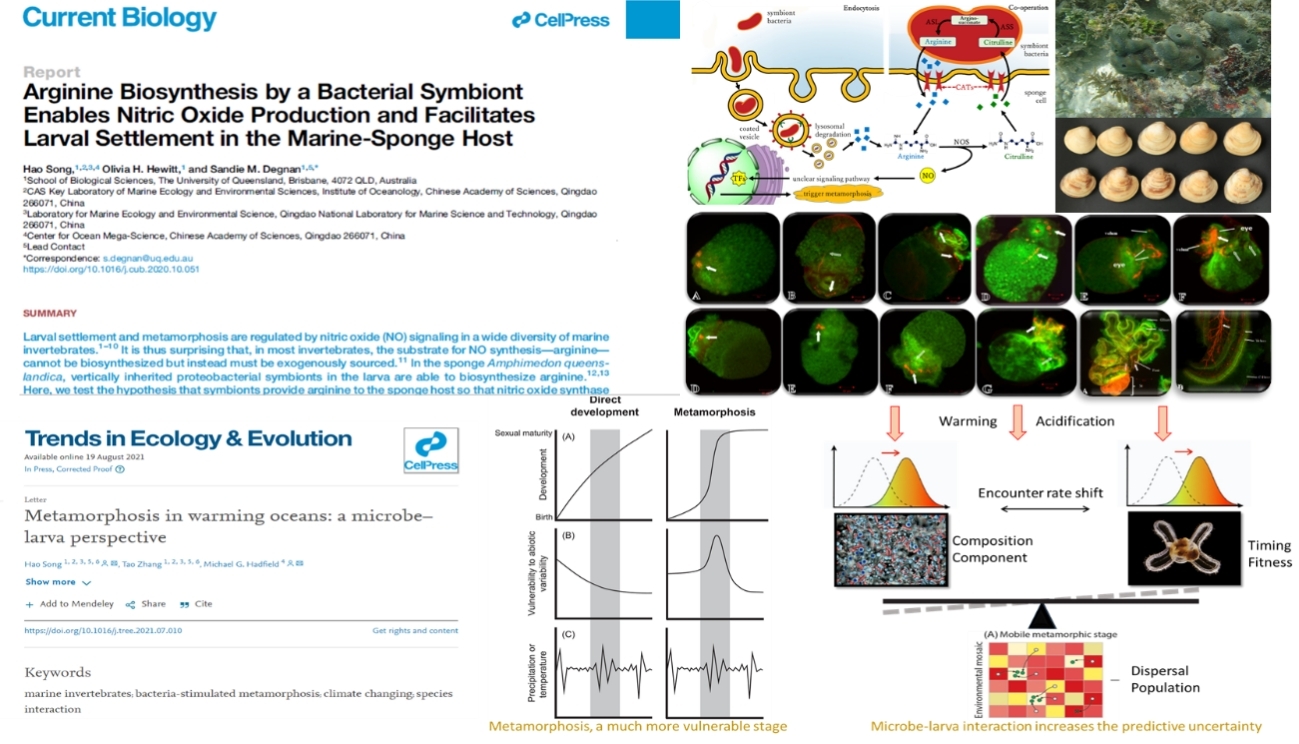Recently, a leading academic journal Trends in Ecology and Evolution published an opinion article jointly written by assistant Prof. SONG Hao, Prof. ZHANG Tao from the Institute of Oceanology, Chinese Academy of Sciences (IOCAS), and Prof. Michael Hadfield from the University of Hawaii.
Predicting and ameliorating the impacts of climate change on animal species presents a major concern for biologists. However, most of the current studies have ignored an important fact that organisms at different stages of development have divergent sensitivity to the environment, while metamorphosis is the most sensitive and vulnerable development period for most animals.
Current studies on metamorphosis vulnerability to environmental stressors bias focused on only two animal groups, the amphibians and insects, causing to overlook most of the animal diversity exemplified by marine invertebrates, which possess a distinct metamorphosis transition and live in a different habitat.
Marine invertebrates represent most of the animal diversity on earth and are the dominant animals on surfaces beneath the oceans. While the major climate-change environmental factors affecting terrestrial habitats are temperature and concomitant rainfall, the seas are strongly impacted by dual effect of warming and acidification.
This article pointed out that, onset of metamorphosis in most marine invertebrates is triggered not by endocrine/neuroendocrine factors, as occurs in amphibians and insects, but by interactions between larvae and bacteria.
These bacteria-larva interactions are among the most important forces structuring marine ecological communities, and commonly climate-dependent. Global climate change will lead to shifting of "microbial-larval metamorphosis" balance, causing butterfly effect.
Thus, accurate predictions of organismal responses to climate changes cannot be achieved without a deep understanding and recognition of the pervasive importance of bacteria-animal interaction among marine invertebrate species.

Metamorphosis of marine invertebrates (Song et al. 2021, CURR BIOL; Song et al. 2021, TRENDS ECOL EVOL; Lowe et al. 2021, TRENDS ECOL EVOL)
Song, H., Zhang, T., & Hadfield, M. G. (2021). Metamorphosis in warming oceans: a microbe-larva perspective. Trends in ecology & evolution, 36(11), 976-977. https://doi.org/10.1016/j.tree.2021.07.010
(Editor: ZHANG Yiyi)
|
|

Address: 7 Nanhai Road, Qingdao, Shandong 266071, China
Tel: 86-532-82898902 Fax: 86-532-82898612 E-mail: iocas@qdio.ac.cn


